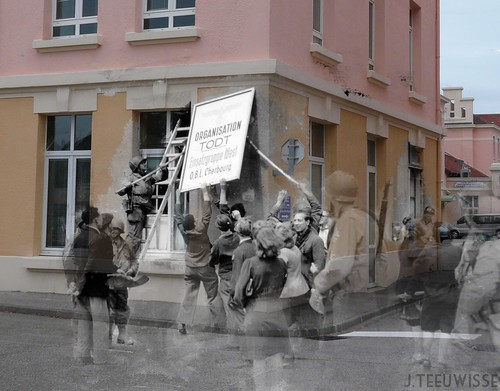Reviewed for Noir Journal: The Quest for Anna Klein
/In Thomas H. Cook's new historical espionage novel, The Quest for Anna Klein, a would-be American spy spends a lifetime tracking down the woman he longs for — and must avenge. I reviewed it for Noir Journal and repost it here.
Thomas Danforth has a lot to get off his chest, and he tells it to Paul Crane. As The Quest for Anna Klein begins, it’s 2001 in New York City — in the aftermath of 9/11. Crane, a young researcher, wants to take harsh vengeance on America’s enemies. The elderly Danforth can relate. He’s spent much of his ninety-plus years seeking his own brand of vengeance.
Danforth’s tale begins in 1939. He had traveled the world with his wealthy father and the young man now runs the family’s import business. He’s just the type to be recruited to provide cover for a fledgling American intelligence operation that will lead to the attempted assassination of a menacing tyrant named Adolf Hitler.
Danforth figures to stand squarely with the good guys, but the real world of espionage seems beyond him until he meets a secretive and beautiful young spy-in-training, Anna Klein. The mystery of Anna lures Danforth to break from his pampered life and join her on the dangerous mission within Germany to kill Hitler. It’s a thrilling time for Danforth, alone with the girl he believes will give him a more dangerous but fulfilling love and life. Then the attempt fails horribly and Danforth must flee, leaving Anna behind. She disappears, possibly into the dungeon of a Gestapo prison.
Danforth must find her. Throughout the war and beyond he embarks on a rabid and marathon quest that costs him nearly all. Anna might have been a double or even triple agent, he learns, and his pursuit takes him to postwar Europe and points East, a grim survey of the tragedies of twentieth-century Europe. In the Soviet Union he’s arrested and sent to a gulag for twelve years.
As more cruel questions confront Danforth, his search descends into an obsession with extracting vengeance at all costs. People have betrayed him. Could Anna have been at the heart of it all?
The best espionage and mystery novels are not about spies and plots and murders but about conflicted souls and the sorry truths they discover about the human condition. Quest offers fine glimpses of that, though the story may stall some readers looking for a fast-paced spy tale. The narrative framed with Crane creates many switches in time, the first third can be slow going as Danforth sets up his story, and it carries waves of foreboding and foreshadowing.
Sticking with Danforth will reward the reader. The last third moves faster and approaches the quality of espionage masters Le Carré, Furst and McCarry, yet with a profound style all its own. Author Thomas H. Cook knows when it’s time to unleash the raw story. He gives you no choice but to follow Danforth as he hurtles on through dark times that threaten to make him far from a savior and just another hopeless victim.
This is Cook’s first go at an espionage novel. It seems a unique angle for a spy story to have Danforth plow onward like a dogged and self-appointed detective, but it’s not unfamiliar territory for Cook, who has had a long and successful career writing crime and mystery novels. Cook received an Edgar award for his 1996 novel The Chatham School Affair. Six of his novels have been nominated for awards, including Red Leaves in 2006.
The way the story’s told might split some opinions, but few can deny the novel’s thoughtful and compelling lesson about vengeance.

